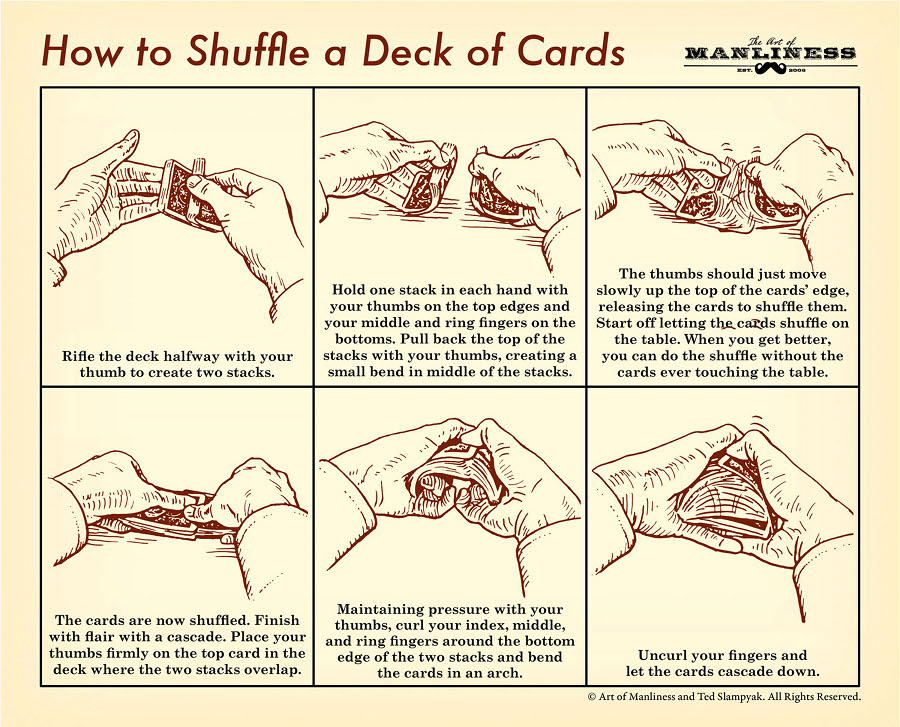A discussion during last night’s home game (I busted on the bubble) about the number of times it was necessary to shuffle a deck of cards to achieve randomness led me to a little research.
It was the general consensus at the table that seven was the correct number of shuffles, I had never really paid much attention to it, having only managed to overcome a little physical abnormality (it’s why I’m the Poker Mutant) to manage an awkward shuffle in recent years. But even though there was agreement about the number, the particulars of whether it mattered that the deck had been used in a hand or was fresh out of a new pack posed some question, and was it seven professional riffles, a machine shuffle, or just some guys around a folding card table-type shuffles?
On the first, I was pretty sure that the answer was no. Random is random, and if a data set can be considered random , it should make no difference how orderly it was before randomization.
As to the other, I found an article in the New York Times from nearly thirty years ago, about a paper by Drs. Dave Bayer (mathematics and computer science, Columbia) and Persi Diaconis (mathematics and statistics, Harvard as well as a magician), who used observation of card games and computer simulations to determine the optimum amount of shuffling required for single- and multiple-deck card games (like blackjack).
By saying that the deck is completely mixed after seven shuffles, Dr. Diaconis and Dr. Bayer mean that every arrangement of the 52 cards is equally likely or that any card is as likely to be in one place as in another.
The cards do get more and more randomly mixed if a person keeps on shuffling more than seven times, but seven shuffles is a transition point, the first time that randomness is close. Additional shuffles do not appreciably alter things.
…
In the meantime, he also worked on ”perfect shuffles,” those that exactly interlace the cards. Almost no one except a magician can do perfect shuffles every time. But Dr. Diaconis showed several years ago that if a person actually does perfect shuffles, the cards would never be thoroughly mixed. He derived a mathematical proof showing that if a deck is perfectly shuffled eight times, the cards will be in the same order as they were before the shuffling.

